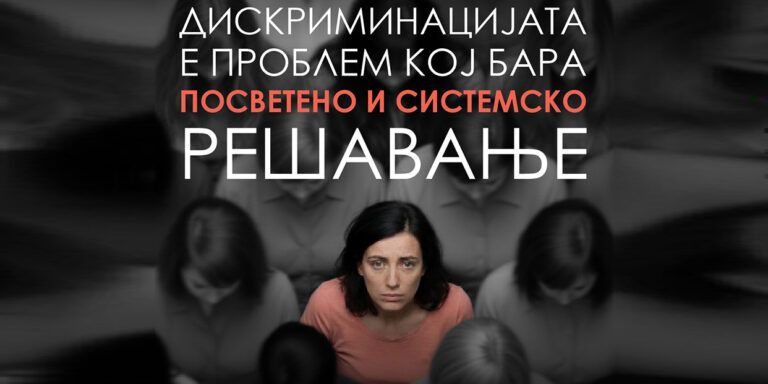Better treatment for people with disabilities – Let’s learn from each other
“For the first time, we are all here, face-to-face, to speak openly, not to criticize, but to find ways to help each other,” said Gordana Trajkovska, president of “Poraka” Negotino, welcoming people with disabilities, parents, and medical staff who gathered for the first roundtable titled “Facing Challenges and Stigmatization.”
In the room where everyone had gathered, one could feel the hope and determination. Gordana “broke the ice” with an emotional story about her 34-year-old daughter, Božidarka, a service user of “Poraka.” “The struggle is not just for physical accessibility but also for empathy, respect, and equal treatment,” she said. “Every day is a fight, but every day is also an opportunity. I testify to this situation because I see it from the perspective of a parent and as the president of the organization that provides these services,” Gordana shared.

Parents of children with disabilities, Valentina Taseva and Daliborka Zlateva, spoke about everyday challenges such as transportation, specialized medical aids, appropriate education for doctors, and the enormous financial burden they carry for physiotherapy, medical aids, and respiratory devices.
“All these aids are expensive, and as caretakers, we cannot provide them alone,” said Valentina Taseva. “Talk to those who care for the children. They know them best,” Daliborka Zlateva, from the Association of People with Cerebral Palsy and Other Disabilities in Veles and mother of a child with disabilities, urged the doctors. She also emphasized the need for a gentle approach and empathy to ensure better cooperation and a smoother examination process.
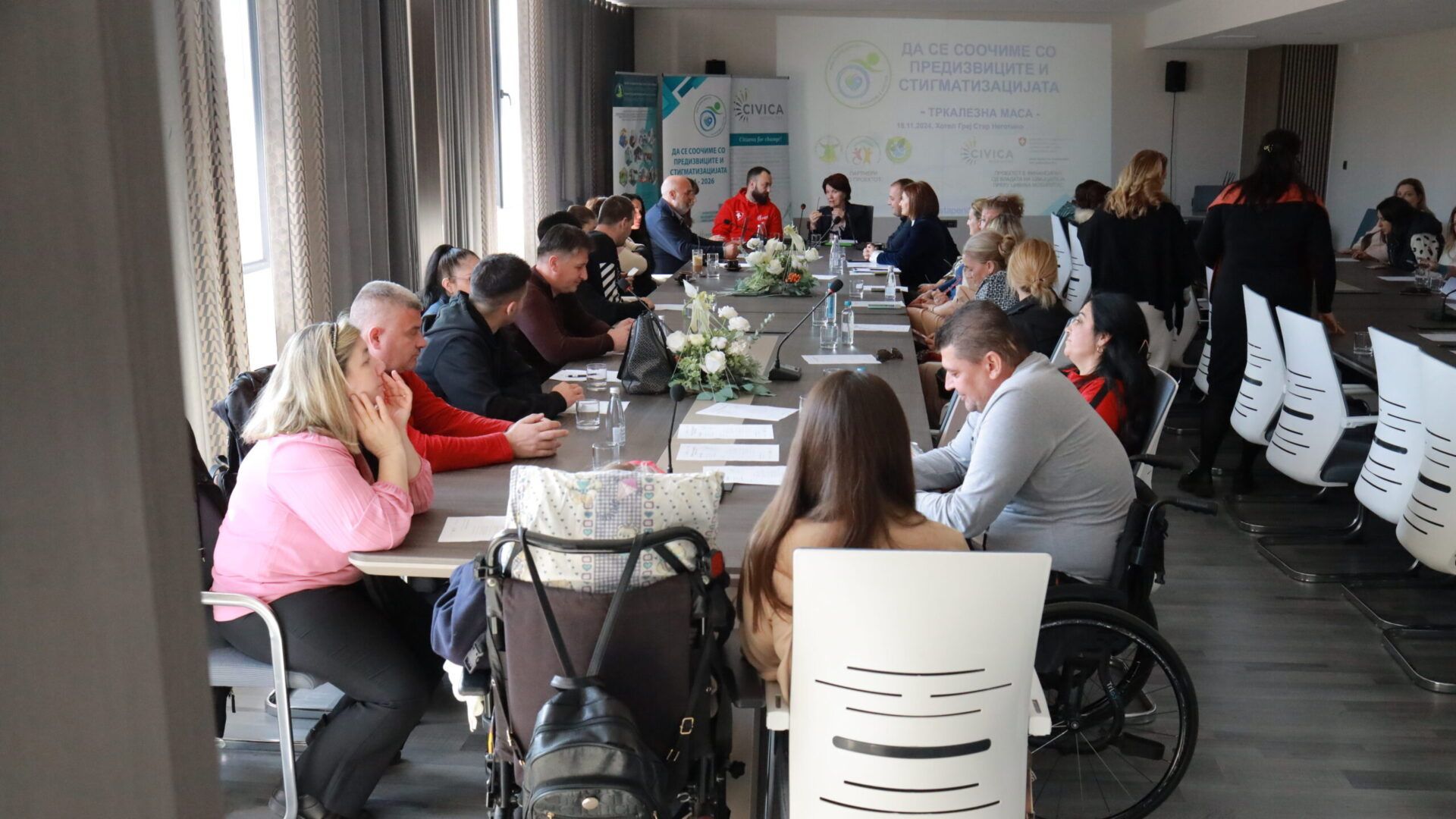
Due to the issues discussed by the parents, some people with disabilities were unable to attend the event. Such was the case with Jani Ivanov, a young man with a spinal injury who, due to lack of funds, could not receive proper treatment abroad, and Slavica Tasheva, who struggles daily with transportation issues. Their stories were shared through video recordings, but regardless of the format, they deeply impacted the emotions of the participants attending the event live.
Although facing numerous challenges, doctors believe there is room for progress. “We are not sufficiently trained on how to approach people with disabilities,” said Dr. Rozjana Nikolova Janeva, a gynecologist who has been caring for women with disabilities at “Poraka” Negotino for over ten years. “Examinations are a real challenge, but with support from mediators and families, we try to ensure every patient receives dignified care. The reality is that we do not have the proper training, but we all strive to do more,” she said.

Dentist Asparuh Dimkovski, who has worked with people with disabilities for more than ten years, stated that more than 90% of dental interventions were successfully carried out.
It became clear that the solutions are not solely in physical adaptations. “Empathy and awareness are needed, as without collective action, these people remain forgotten,” said Vilma Metodieva, a nurse and psychologist.
The discussion did not just focus on the problems, and the roundtable was not only a place for sharing personal stories. It was a call to action. Duško Hristov, coordinator of “Poraka” Negotino, announced the “Accessible Doctor” platform, which will facilitate communication between people with disabilities and healthcare workers. Proposals for multidisciplinary centers, prioritization in the “My Appointment” system, and education for doctors were just some of the conclusions of the roundtable. According to participants, these initiatives could make life easier for hundreds of families across North Macedonia. Therefore, the roundtable was a reminder that when it comes to inclusion, we all have a responsibility. The lack of transportation and accessibility in institutions are problems that can and must be solved. “The changes must start with us, and Negotino will be an example of how we can turn inclusion from words into action,” said Trajkovska.
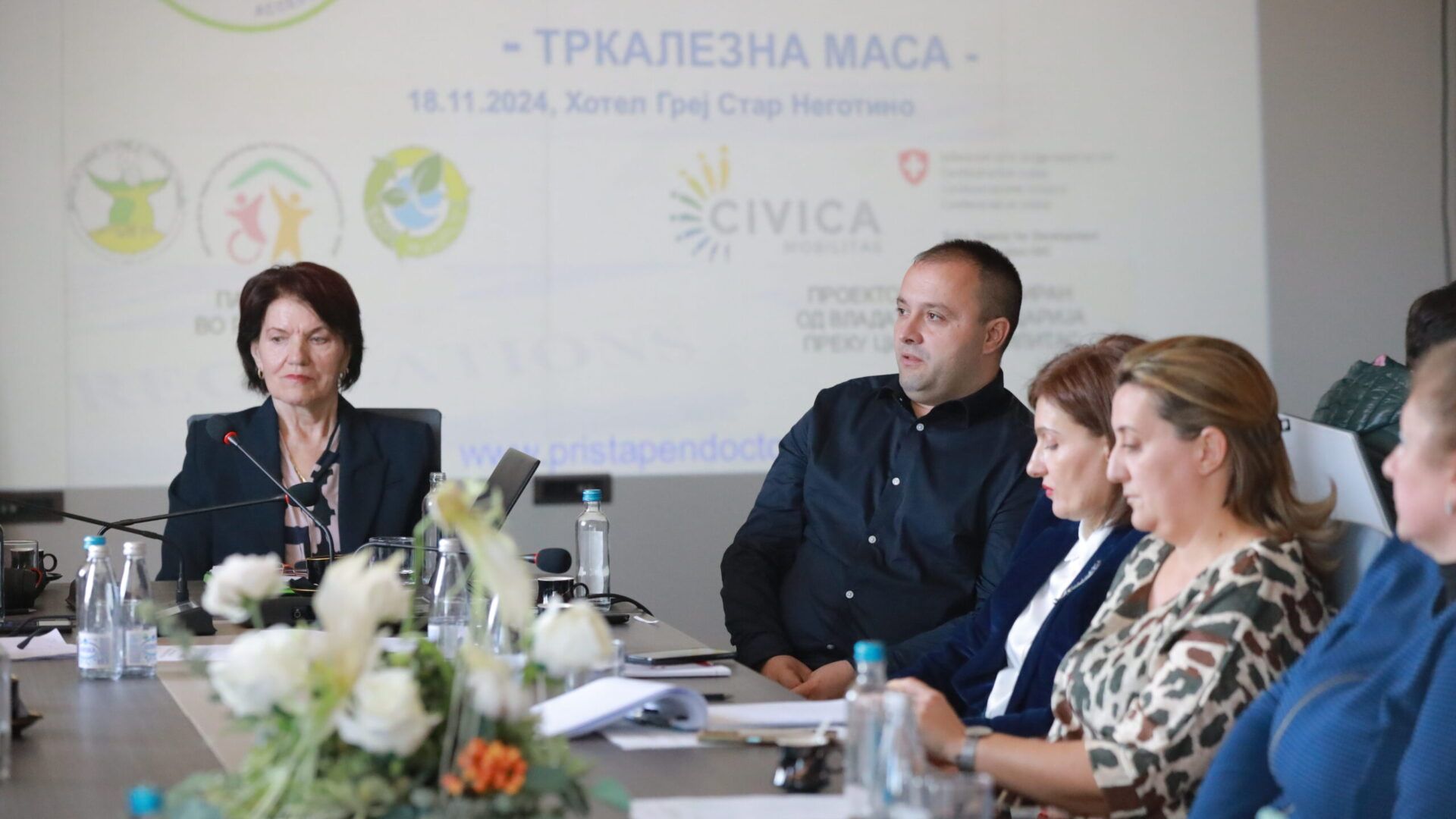
According to statistics, around 200,000 people in North Macedonia, or 10% of the population, live with some form of disability. While the challenges were the focus of the discussion at the roundtable, Trajkovska emphasized: “The situation today has changed significantly from 35 years ago. New generations of doctors are striving to equalize the treatment of people with disabilities with other patients.”
The event ended with the hope that such initiatives would inspire changes, not only in Negotino but also more broadly. They serve as an example that, with joint effort, we can take a step towards a more inclusive and empathetic society. This was the first roundtable in the Vardar region, organized as part of the project “Facing Challenges and Stigmatization,” supported by the Government of Switzerland through Civica Mobilitas. The next steps include organizing roundtables in Veles and Kavadarci to extend this positive example to other communities.

In anticipation of December 3, International Day of Persons with Disabilities, let us remember that only through collective effort can we build a society where every voice is heard, and every individual feels valued. And this thought, let it not leave us, let us live with it every day.
“Facing Challenges and Stigmatization” is a project by the Center for assistance to persons with mental disabilities “Poraka” Negotino, implemented in partnership with the Association for environmental protection and development “Eko-Život” from Kavadarci and the Association of people with Cerebral Palsy and other disabilities from Veles.


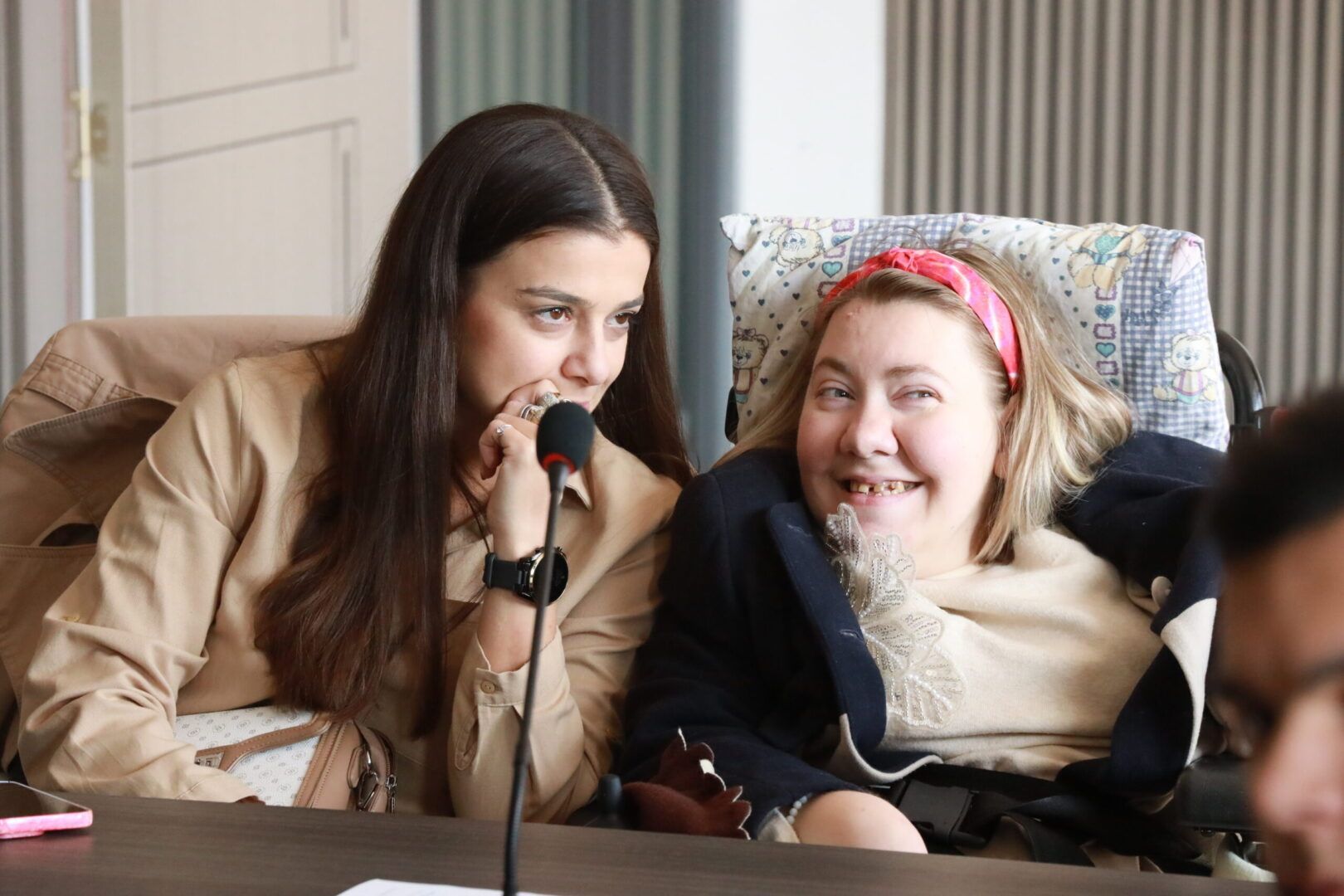

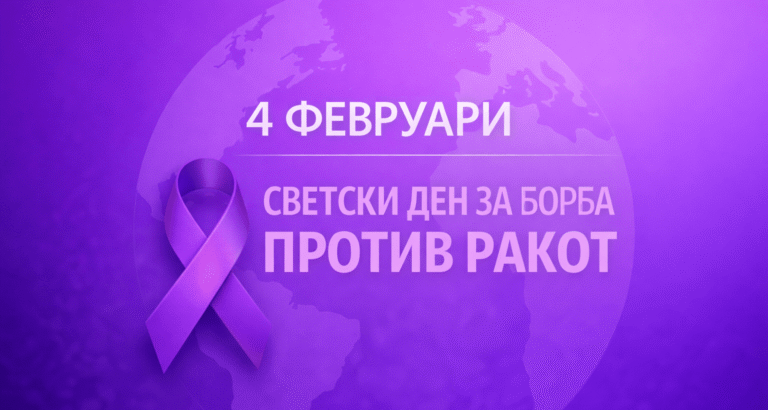
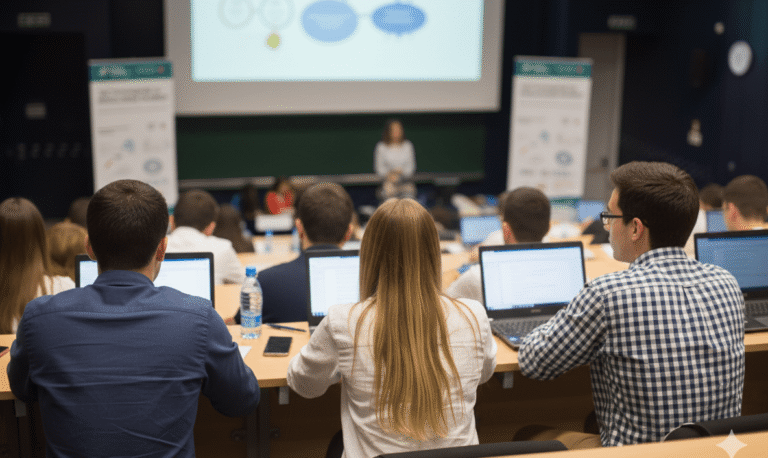
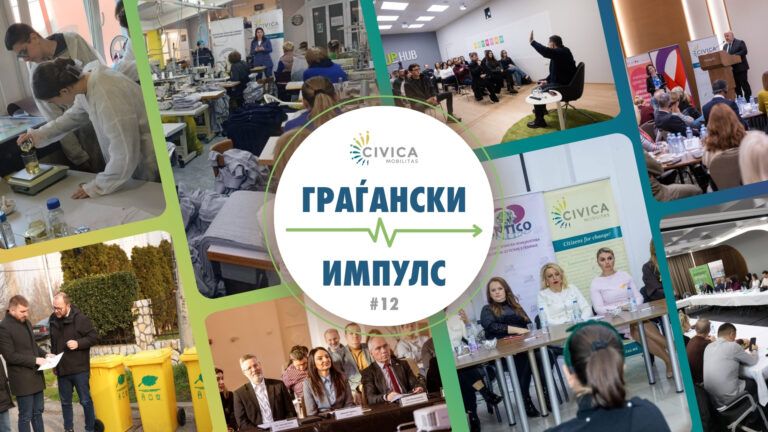
![Sre]ni praznici(2)](https://civicamobilitas.mk/wp-content/uploads/2025/12/sreni-praznici2-768x432.jpg)
